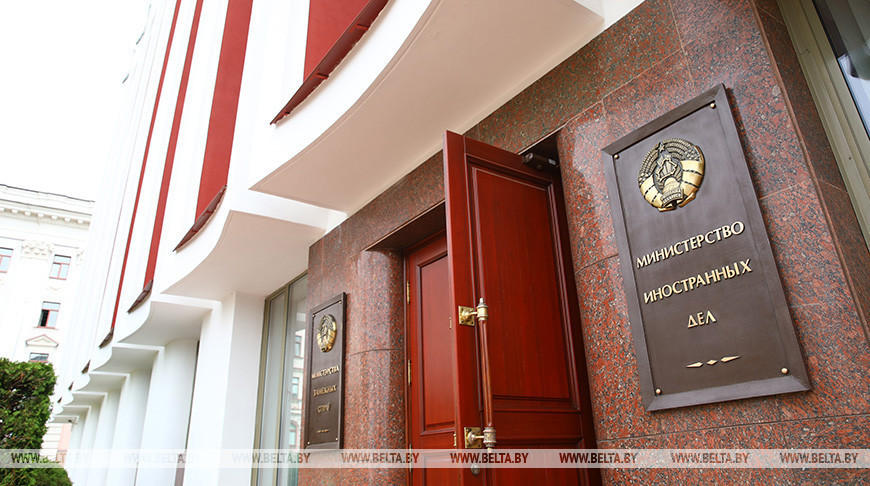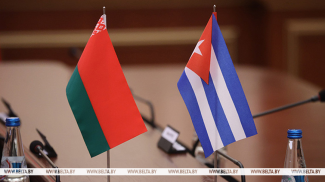
An archive photo
MINSK, 2 April (BelTA) – In response to a request from BelTA, the Belarusian Ministry of Foreign Affairs has commented on Latvia's plans to build a nuclear power plant in cooperation with Estonia and Lithuania.
“I believe that this is yet another example of, to put it mildly, inconsistent and short-sighted policy of our Baltic neighbors. We remember well that quite recently, in 2009, the operation of the second and last unit of the Ignalina NPP in Lithuania was discontinued following pressure from the EU. By the way, the estimated cost of shutting down the station will exceed €3 billion. A short while ago all of Europe was ready to decommission nuclear power plants and to commit themselves to not building new reactors. They thought wind energy and cheap American shale gas would be enough for them to carry on. But the reality turned out to be harsher,” Press Secretary of the Ministry of Foreign Affairs Ruslan Varankov said in a commentary for BelTA.
He remarked that wind energy alone cannot meet basic needs, and the trade agreement on shale gas that America offers to Europe is absolutely back-breaking. “The gas from overseas turned out to be far from cheap, given the costs of transportation in liquefied form across the ocean and regasification,” the diplomat noted.
Ruslan Varankov also recalled the hybrid war that Vilnius has been waging against Belarus in connection with the construction and operation of the Belarusian NPP: “They record every fallen brick at the construction site, every scheduled shutdown at the Belarusian NPP in Ostrovets. From the very beginning, they have been calling on the international community to force Belarus to abandon its plans to build a nuclear power plant. They gave us hell in international organizations, they obstructed us on all fronts.”
“The Lithuanian government intends to keep the Belarusian NPP issue on the political agenda of the European Union in the next four years. They have assigned our station the status of a permanent threat. They have thrown their population into panic, constantly distribute iodine and come up with evacuation plans. That said, the same Baltic countries have long been saying that nuclear energy is economically feasible and environmentally safe. We offered them our services in energy supply, did not disconnect them from BRELL, we suggested jointly building a nuclear power plant in Belarus, operating it and using cheap electricity. But the Baltic politicians saw this as a threat to their countries. Now they will try to convince their taxpayers that it is cheaper to build and maintain low-power stations at home burning billions of euros, and then to struggle to consume all the electricity they generate,” Ruslan Varankov remarked.
The press secretary noted that the cost of the NPP will not be low in this scenario, even if energy is distributed to other Baltic states, since there have been no large consumers there like steelmakers, foundry factories or cement plants for a long time. “In other words, these costs will be passed on to ordinary citizens, the poor through tariffs, taxes, and so on,” he said.
“In any case, we expect the Latvian side to strictly comply with international legal obligations, including the Espoo Convention, which provides for public discussions of potentially dangerous projects within the country and with neighboring countries,” Ruslan Varankov said.













